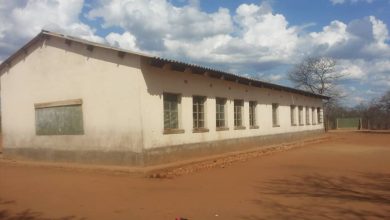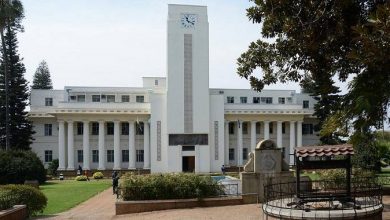ARTUZ calls for Education Act reform

Amalgamated Rural Teachers Union of Zimbabwe (ARTUZ) says the government must implement relevant policies which will effectively align the Education Act with the provisions of the Constitution.
ARTUZ president, Obert Masaraure, said they are on a drive to implement transformative and gender-equitable social policies within the education sector through a 3-year monitoring, evaluation, and reporting exercise to the benefit of up to 300 000 learners in rural schools.
He noted that Zimbabwe adopted the Education Amendment Act in 2020, to align its Education Act with the country’s Constitution, ensuring that every child has access to free basic education and incorporating provisions for child protection, in accordance with the progressive Constitution’s comprehensive Bill of Rights.
“Three years after the act became law, there has been no visible transformation. The media continues to carry stories of rising numbers of dropouts, unavailability of sanitary wear and there have been no well documented success stories of management of cases. Citizens must acknowledge that there is a possibility that there is a level of implementation and success,” he said.
“As ARTUZ, we have been on a drive of monitoring the implementation of transformative, gender equitable progressive social policies in schools. This has been done through our community engagement programs with parents, students, teachers and community leaders. We have identified specific transformative and gender equitable social policies within the education sector that can contribute to the realization of inclusive access to education for all learners.”
Masaraure listed the provisions that they will be monitoring:
Free and Compulsory Education for all as provided for in Section 75 of the Constitution which states that every Zimbabwean has a “right to a basic state funded education and therefore “the state, through reasonable and legislative and other measures must make progressively available and accessible.”
ARTUZ will monitor access to state-funded education in target schools and districts, and the availability of government funding for vulnerable children will be monitored accordingly. However, a significant obstacle to implementation remains the lack of a funding mechanism for basic education, as the budget allocation for government tuition grants in 2023 amounted to a mere ZWL$1.930 billion, equivalent to less than 10 cents per learner due to inflation.
Continuous Education and re-entry for pregnant learners The Constitution of Zimbabwe emphasizes the importance of providing equal educational opportunities for girls and boys at all levels. To promote this equality, the Education Act was amended to include section 68C, which states that no student should be excluded from school due to non-payment of fees or pregnancy.
This amendment represents a significant step taken by the Government of Zimbabwe to protect the right to education for pregnant students and adolescent mothers, removing a major barrier to accessing education and allowing girls to continue their schooling. However, the success of this progressive policy is hindered by negative attitudes and stereotypes held by both learners and educators.
Access to sexual and reproductive health services The 2020 amendment act introduces significant improvements in sexual and reproductive health services for learners in schools, addressing an important gap in the previous legislation. One notable provision is Section 4, which mandates the provision of sanitary wear and menstrual health facilities, including water and sanitation, in all schools.
The inclusion of free sanitary pads for girls, as outlined in Section 4, recognizes the potential disruption that menstruation can cause to girls’ education. Adolescent girls often face financial challenges in accessing sanitary wear, maintaining cleanliness and hygiene during school hours, and dealing with potential stigma from male peers. Therefore, providing access to sanitary products at the school level, along with Comprehensive Sexual Education (CSE) for both boys and girls, is essential to address these challenges and ensure uninterrupted education for girls.
Management of sexual abuse cases The amendment to section 69 of the principal act introduces regulations for managing sexual abuse cases in schools, addressing the crucial issue of ensuring the safety of girls and seeking justice for survivors of sexual violence. These factors directly affect learners’ participation and can hinder their educational empowerment. Additionally, sexual abuse is associated with an increase in suicide cases, further highlighting its detrimental impact on the mental health of learners.
Learners with disabilities The amendment act places the responsibility of providing accommodation for learners with disabilities on schools, in line with the goal of ensuring inclusive and equitable quality education for all. However, the act does not clearly articulate how this inclusion will be funded and realized. It is crucial to ensure that schools have the necessary resources to provide assistive technologies, accessible learning materials, and facilities that enable learners with disabilities to fully participate in education. The act does provide for monitoring of inclusive facilities in schools, and the results of these monitoring exercises can be used as a basis for advocacy to secure increased funding and support for inclusive education.






